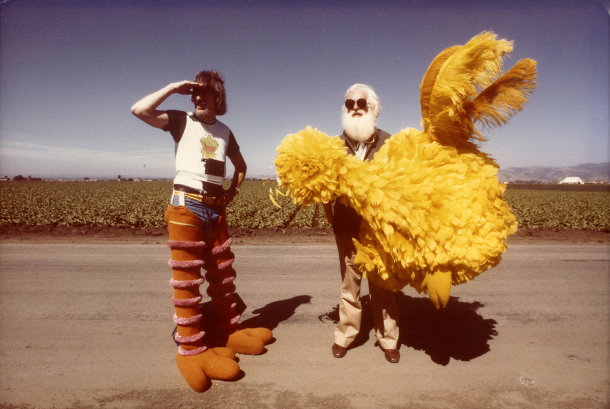Shakha Proshakha
Cast: Ajit Banerjee, Haradhan Bannerjee, Soumitra Chatterjee
Director: Satyajit Ray
Country: France | India
Genre: Drama
Official Site: Here
Editor’s Notes: The following review is part of our coverage for TIFF’s The Sun and the Moon: The Films of Satyajit Ray. For more information on upcoming TIFF film series visit http://tiff.net and follow TIFF on Twitter at @TIFF_NET.
The syncopated rhythms of a heartbeat as interpreted by an ECG meter fill the opening frames of Shakha Proshakha (Branches of the Tree) with sights and sounds that remind us of our own frailty and impending mortality, particularly salient emotions for Satyajit Ray who was approximately the same age as the ailing protagonist in his second to last film made just two years prior to his own death. Branches of the Tree concerns itself with a family whose father has recently suffered a heart-attack; the tree a strong patriarchal figure respected by the community and the branches his four sons who have taken divergent paths like wayward tree limbs straining toward whatever sunlight they might claim as their own. Each son has received a gift from their father in the form of steadfast determinism, unwavering idealism, unmitigated compassion, or keen intellect but none possess all of his virtues as only age and experience can temper and unify our best qualities.
Shakha Proshakha honestly explores how families deal with grief and the ignoble characteristics that manifest themselves when sons and daughters are forced to put their own adult lives on pause for the failing health of their forbearers.
Shakha Proshakha honestly explores how families deal with grief and the ignoble characteristics that manifest themselves when sons and daughters are forced to put their own adult lives on pause for the failing health of their forbearers. The family dinner table comes back to life after years of dormancy, exploding with the chatter of old battles as if it had never been deserted. We engage in secret competitions of piety with our siblings while secretly plotting our escape in a way that will allow us to recuse ourselves from our familial duties without losing moral high ground. It is not that the sons of Ananda Majumdar hold no respect for their father, nor are they the stuff of dubious moral fabric, they are simply driven by youthful ambition, untempered by the lessons that only life experiences can deliver in due time.
Shakha Proshakha would become Ray’s second to last film and its subject matter reveals a filmmaker preparing for the impending realities of his own mortality.
By concentrating on a single family and how they contend with grief, Ray also works at demystifying the culture of India for a world audience. During extensive dinner scenes we are confronted with dining habits different than our own as the family uses the fingers of their right hand to eat, but they hold the same dinner conversations as any other family would. In his book, Satyajit Ray on Cinema, Ray dissects the curiosity of outsiders coming into India to make films and the different facets of Indian culture they choose to concentrate on or sometimes fabricate outright to which Ray says “For a land where cows are holy and God is a phallus, anything will pass for the truth”. As Ray’s films were not received at home nearly as well as they were abroad, the inclusion of cultural elements is a purposeful attempt to expose those “holy cows” and “phallic Gods” as they truly exist to a worldwide audience. Ray spends an inordinate amount of time at the family dinner table, sometimes showing fingers covered with rice as the family carries out regular dinner conversations, not in an attempt to alienate outsiders that may be unfamiliar with the practices of Indian culture but to erode our feelings of estrangement and to show us that dinner table conversations ring with familiarity in many corners of the world.
Shakha Proshakha would become Ray’s second to last film and its subject matter reveals a filmmaker preparing for the impending realities of his own mortality. We see the concerned father behind the filmmaker, hoping that his own children will push through to find their own sources of sunlight so that they may thrive and eventually become trunks that support their own branches after his inevitable death. They will grow and harden in time and develop strengths of their own that their children will unsuccessfully aspire to emulate in the grand and unending cycle of life as there are no shortcuts around the hard and painful lessons that shape our moral character, and though they’ve seen it all before, our parents cannot bear these burdens or learn these lessons for us no matter how much they wish they could.
Shakha Proshakha would become Ray's second to last film and its subject matter reveals a filmmaker preparing for the impending realities of his own mortality. We see the concerned father behind the filmmaker, hoping that his own children will push through to find their own sources of sunlight so that they may thrive and eventually become trunks that support their own branches after his inevitable death.




